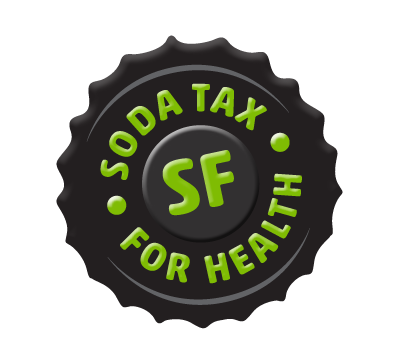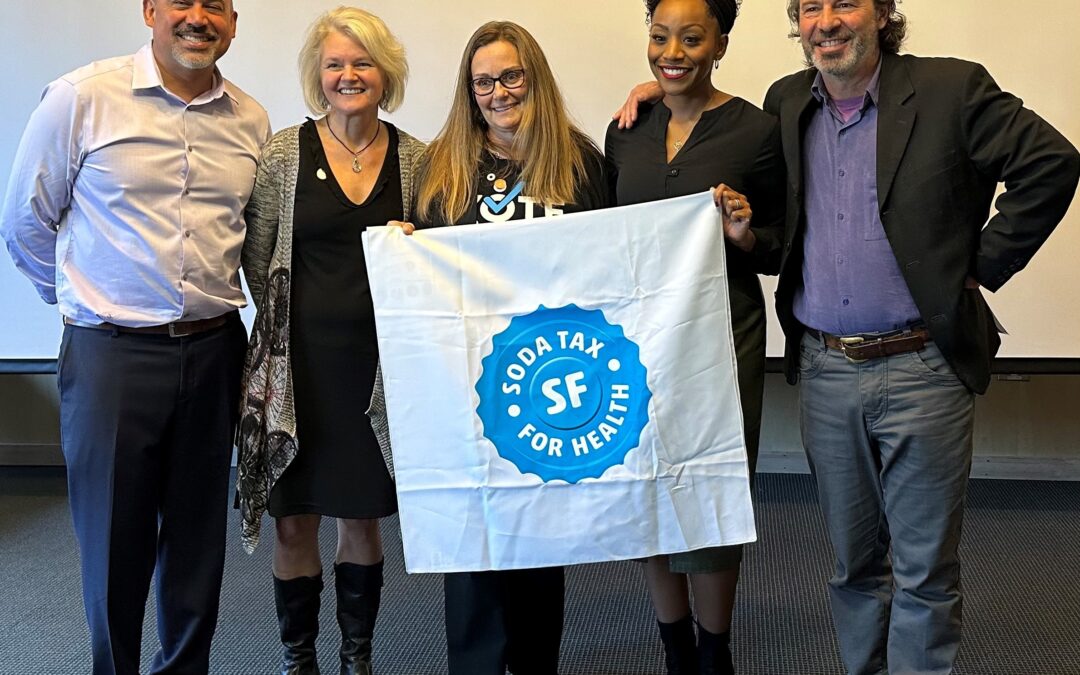By Melinda Martin
As I reflect on the work that I have contributed to the soda tax and its 5-year mark of its implementation in San Francisco, never would I have imagined that I would be involved in planning a medical grand rounds hosted by UCSF/Zuckerberg SF General and the Veterans Administration (usually tailored for clinical and health care professionals). In any case, I was eager to hear of how I could support those who have paved the way for a successful partnership between community public health and academia. Dr. Dean Schillinger reached out to the DPH Healthy Eating Active Living (HEAL) team that he would be hosting a medical grand rounds and wanted to focus on the work of SF’s soda tax journey, its impact on the community and the community public health and academia partnership.
Dr. Grant Colfax, Director of SF Public Health Department, provided introductory remarks for the hybrid (in person and virtual) grand rounds. He shared that although taxes are unpopular, the soda tax has been able to improve public health. The soda tax revenue has been able to support all San Franciscans and specifically low-income communities and youth targeted by the beverage industry. Dr. Colfax closed out his remarks sharing that when working in partnership with academia, public health, community is the “secret sauce” to the success in San Francisco.
The dynamic panel of speakers Christina Goette (SF Department of Public Health), Roberto Vargas (UCSF), Dr. Dean Schillinger (UCSF) and Dr. Kristine Madsen (UC Berkeley) were all pioneers in laying the groundwork of the passing of the soda tax in 2016. They each shared past and current work associated with soda tax and sugar-sweetened beverage (SSB) consumption. Christina provided context and history of the passage of the tax in 2016 and shared evaluation findings from the work of the SF soda tax. Roberto shared his work of Collective Impact around water equity, engaging UCSF researchers, faculty and staff for clinical-based advocacy, as well as the role and lessons of the Sugary Drinks Distributor Tax Advisory Committee. Dr. Schillinger shared research on the evidence of SSB tax effectiveness (associated with social norms, prices and purchases, cost effective analysis and health outcomes). Dr. Kristine Madsen shared the successes and challenges of soda taxes in the U.S. and pre-emption.
Malia Cohen, CA State Controller closed out the grand rounds by sharing her previous work of the soda tax legislation journey in San Francisco. She shared that the soda tax movement has received international attention, thus illustrating how soda tax public policy has become a worldwide phenomenon. Lastly, she recognizes the accountability of the soda tax and how the revenue continues to go back to the community, to those who are adversely affected and targeted by the beverage industry.
It was such an honor and privilege to support and learn from such wonderful community advocates who fought and triumphed in the good fight to ensure that communities are benefiting from the soda tax revenue and improving their health. Can’t wait to celebrate the next five years!
Watch the Grand Rounds on YouTube



